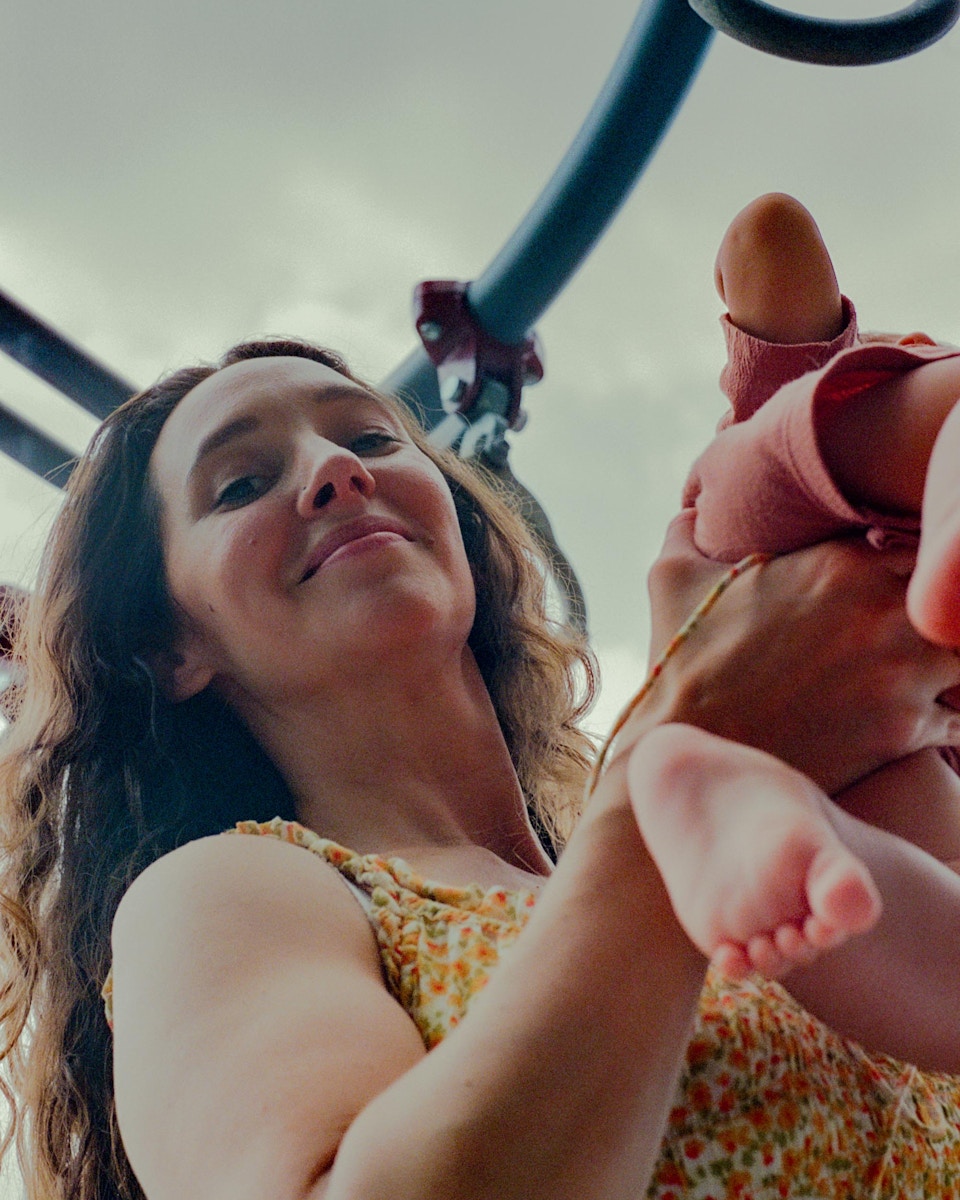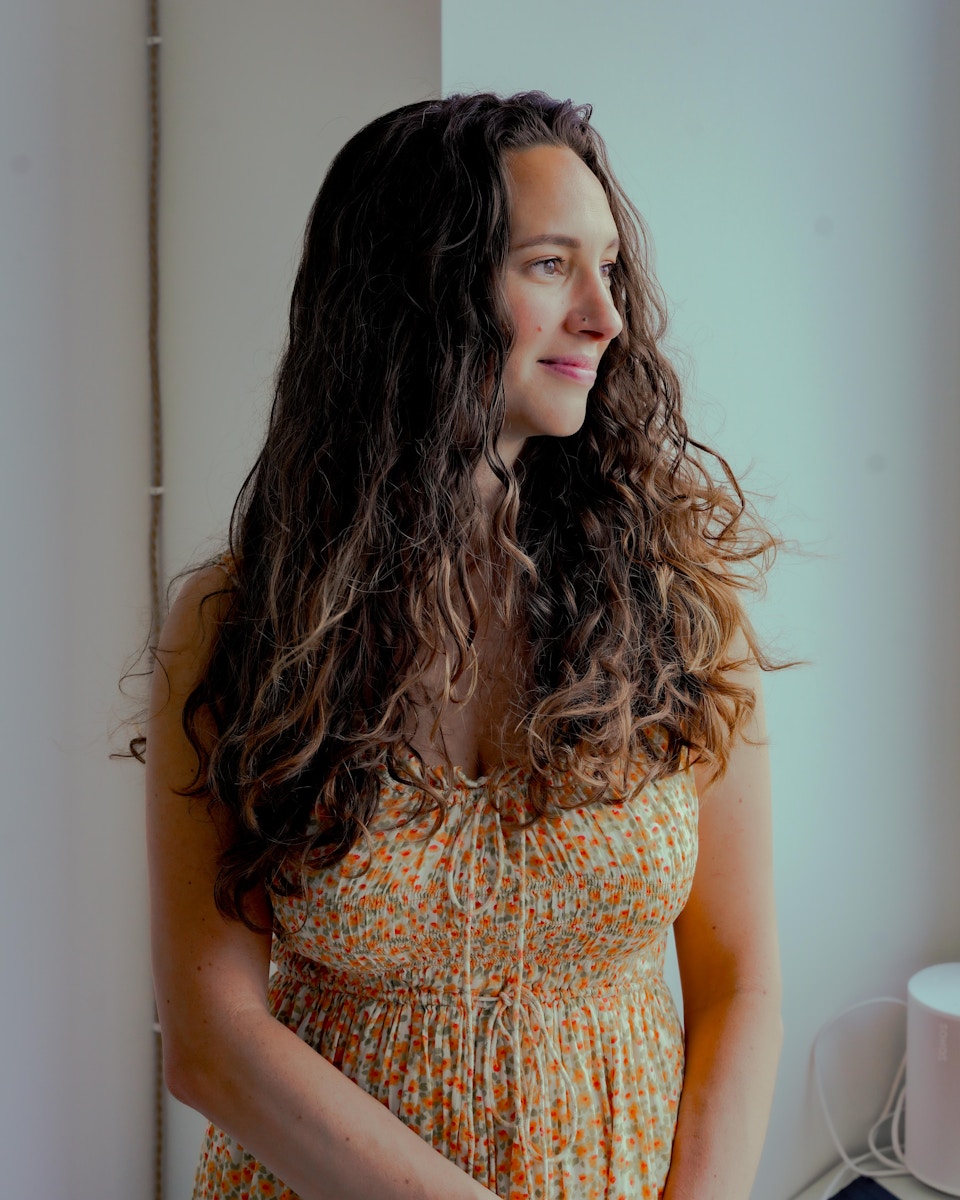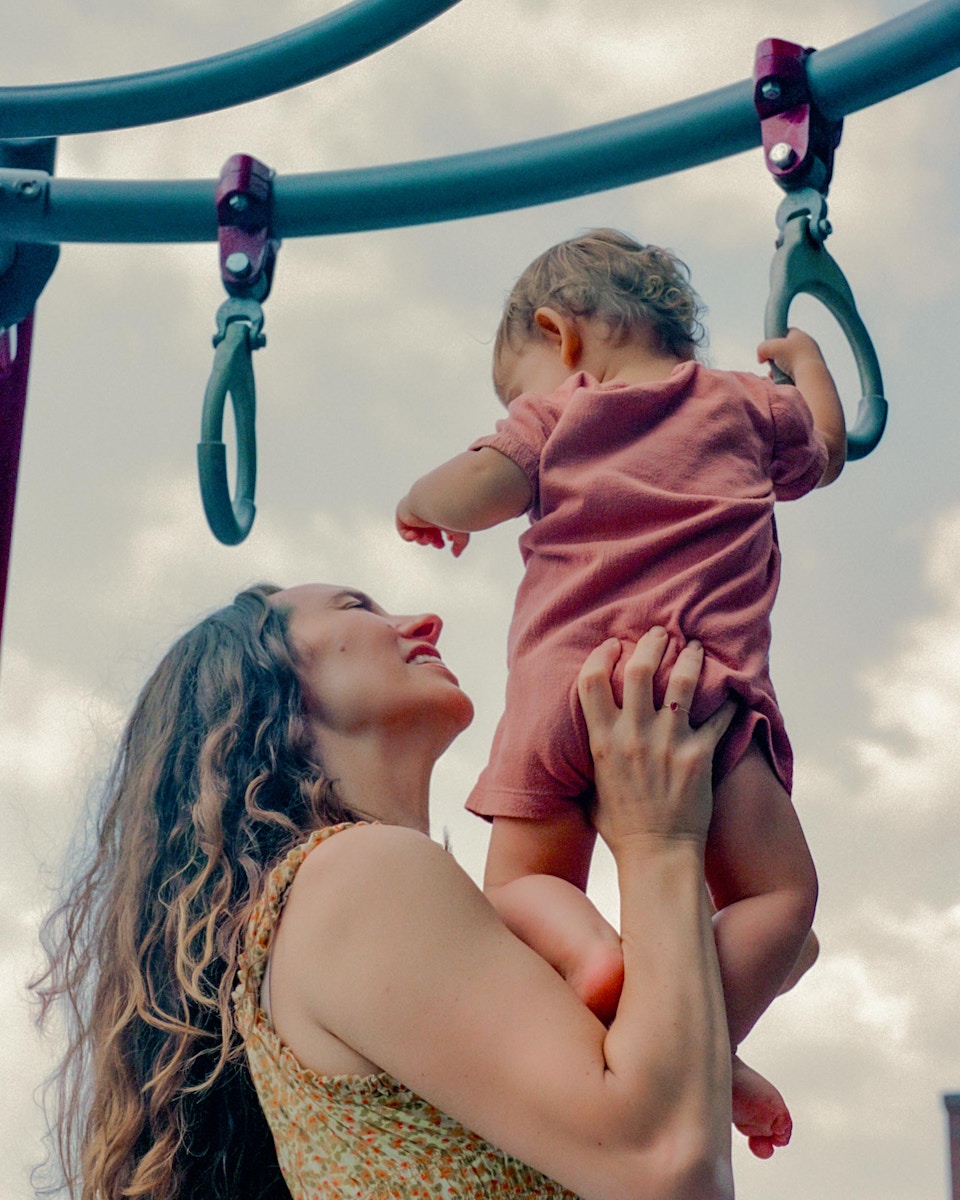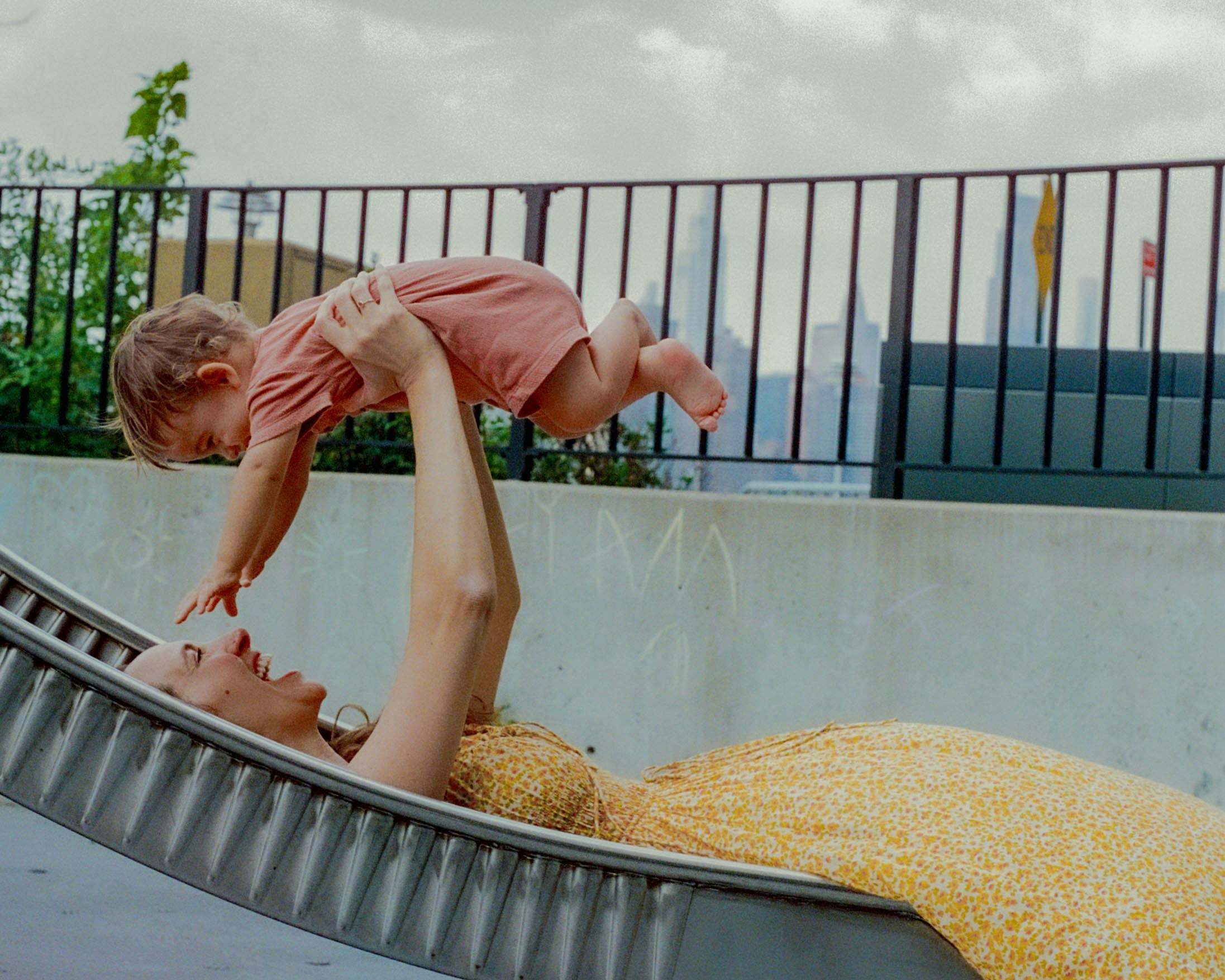
Getting Sticky With Amber Rae
Photos by Anumeha, Words by AnaMaria Glavan
“Four years ago, while married, I looked into the eyes of a stranger and fell instantly in love. The timing of this couldn’t have been more inconvenient.”
Hooked, right? That’s just one delicious little crumb from Amber Rae’s new memoir, Loveable, a book about the complexities of love.
The past year alone could have been its own story. In just 365 days, the best-selling author turned in her third manuscript, gave birth to her son, August, powered through edits six weeks postpartum, fled the California fires, cycled through 17 different living situations in three months, relocated to Brooklyn, watched her husband move his art studio across the country. And then, finally, she published her book.
While much of the memoir focuses on romantic love—and the courage it takes to walk away from relationships that don’t fulfill us—it also dives into the mother wound: the deep gap we confront when we become mothers ourselves. How does your relationship with your own mom shape the generation that comes after you?
Below, Amber talks about modeling healthy love, reframing discomfort as an adventure, and the most surprising feedback she’s received: that her mother’s presence in the book helped women better understand their own daughters—or their own mothers.
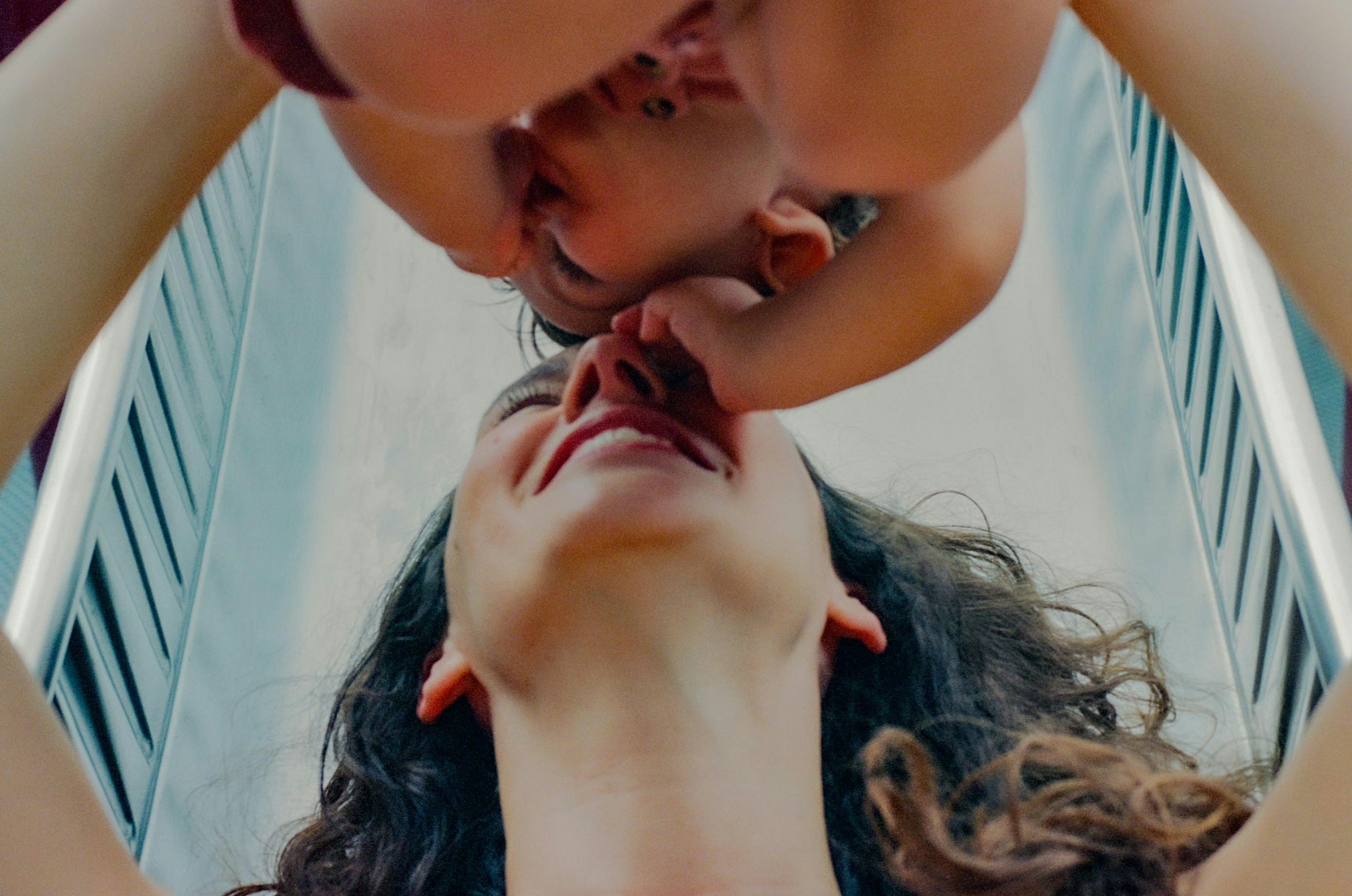
Conflict isn’t (always) a sign of incompatibility
For me, discomfort is about trusting that there are lessons to be learned. Leaning in with curiosity instead of resisting discomfort. My first book was Choose Wonder Over Worry, and I try to live by that. How can I be in awe of watching things unfold even when it’s uncomfortable?
We had to move several times while I was pregnant because of mold in our homes in California. My husband got very sick. It was hard but we became closer through it. Nothing had really tested us yet, and suddenly I was pregnant and we were about to have a child. That experience prepared us to become co-pilots—we became a stronger team because we had to navigate adversity together.
I had always thought conflict meant something was wrong. That it was a sign of incompatibility. But actually, it’s an opportunity to refine how we care for each other. Take something small: I’m messy and my husband is impeccably clean. I could roll my eyes and think, Why is he so anal? But when I dig deeper, I realize his need for a clean space comes from wanting to feel safe and regulated in his nervous system. Once I saw that, I could think: Oh, I want that for him too. It’s always important to understand the why.
On being a mom: “I’m actually obsessed with it”
I had already done a lot of mothering as a child. I grew up too fast, so part of me was tired of mothering. What tipped me into wanting kids was the idea of regret. If I was on my deathbed and hadn’t experienced motherhood, that felt like something I’d regret.
Beforehand, I could easily list all the things I thought I’d hate about motherhood: loss of autonomy, sleep deprivation, the hard parts everyone warns you about. But I couldn’t yet imagine everything I’d gain. And once I became a mother, I wasn’t prepared for how big my heart would feel, or how curious I’d be about this little being. It’s just as hard as I expected but I’m actually obsessed with it.
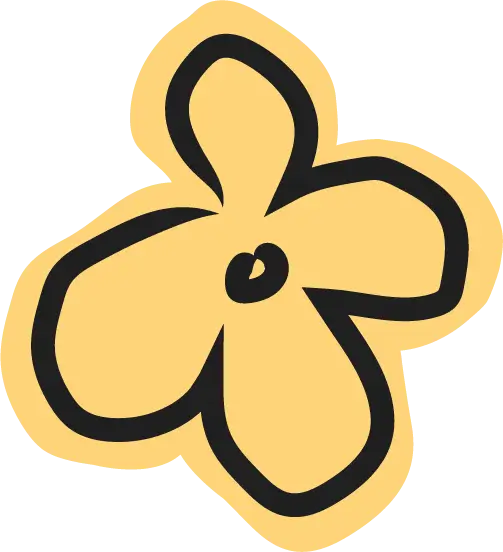
"Beforehand, I could easily list all the things I thought I’d hate about motherhood: loss of autonomy, sleep deprivation, the hard parts everyone warns you about. But I couldn’t yet imagine everything I’d gain. And once I became a mother, I wasn’t prepared for how big my heart would feel, or how curious I’d be about this little being. It’s just as hard as I expected but I’m actually obsessed with it. "

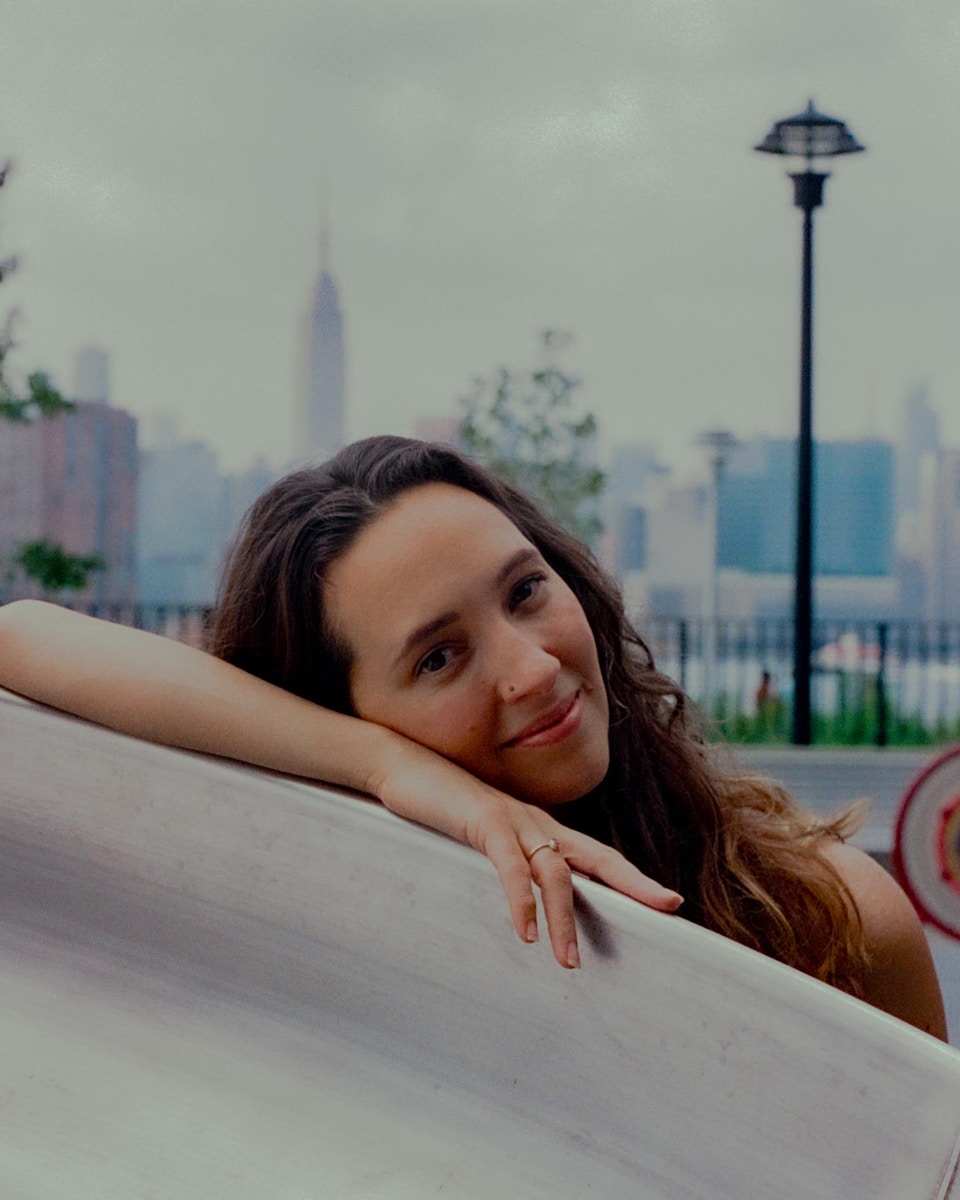
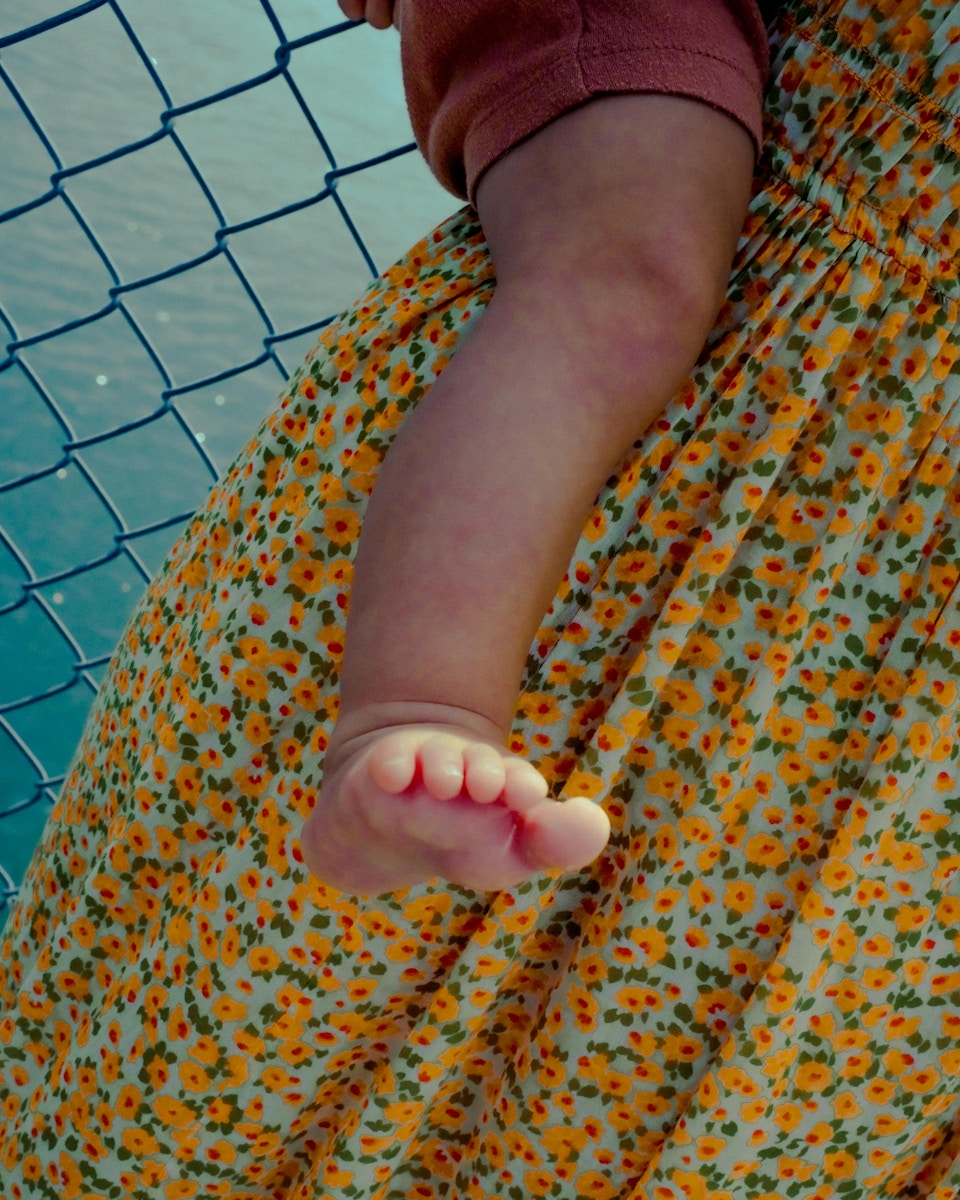
Trust your instincts—and trust his instincts, too
When you become a parent, everyone has an opinion about how you should best raise your kids. There's an expert for everything and everyone on Instagram is now an expert. When you're sleep deprived and running on fumes, it can be hard to hear yourself with all the noise.
It really highlighted for me how much I have to rely on my own intuition. Before I gave birth, I had a call with girlfriends, and they all reminded me that while there will be thousands of experts—on sleep, on food, on everything—and Instagram will be shouting advice at you, ultimately there’s a maternal instinct. They told me: you’re already deeply tapped into your intuition so trust that.
Of course, that’s easier said than done. John is also an intensely involved father. He’s 50/50 and has strong instincts of his own. He’ll say, My instinct is this, and I’ll find myself irritated, thinking, But I’m the mom.
The truth is, John knows our son very well, too. He has a fatherly instinct. Making room for his intuition has been a learning process for me. I never had a father figure I respected, so hearing a male voice in this space sometimes feels unfamiliar. The work for me has been figuring out how to hold space for both of us; not seeing his intuition as threatening to mine but letting them coexist.
Sometimes I have to admit I’m wrong, like with sleep. I resisted taking August off the boob at night until I eventually realized John was right. My son didn’t need to be nursing nineteen times a night.

"The truth is, John knows our son very well, too. He has a fatherly instinct. Making room for his intuition has been a learning process for me. I never had a father figure I respected, so hearing a male voice in this space sometimes feels unfamiliar. The work for me has been figuring out how to hold space for both of us; not seeing his intuition as threatening to mine but letting them coexist."

Protecting his story until he can write it himself
We talked in advance about not wanting to create an identity for our son. He is his own person, and out of respect for that, we decided not to share his face online. We also agreed we wouldn’t do social media for him. No cell phone or iPad until he’s older, ideally not social media until he’s 18.
There’s a parenting method we love called RIE (Resources for Infant Educarers), which is about respecting the child and really considering their perspective. For example, if a baby is immersed in play, you don’t just swoop in and pick them up. You narrate the moment and acknowledge what they’re doing. It’s about putting yourself in their shoes and asking, What does this feel like for them? That thinking extends online, too. Why would I create an identity for him on the internet when he hasn’t chosen that? I do write about motherhood, and my first book ends with our story, but even then, I want to protect his experience and shield him from the chaos of the internet.
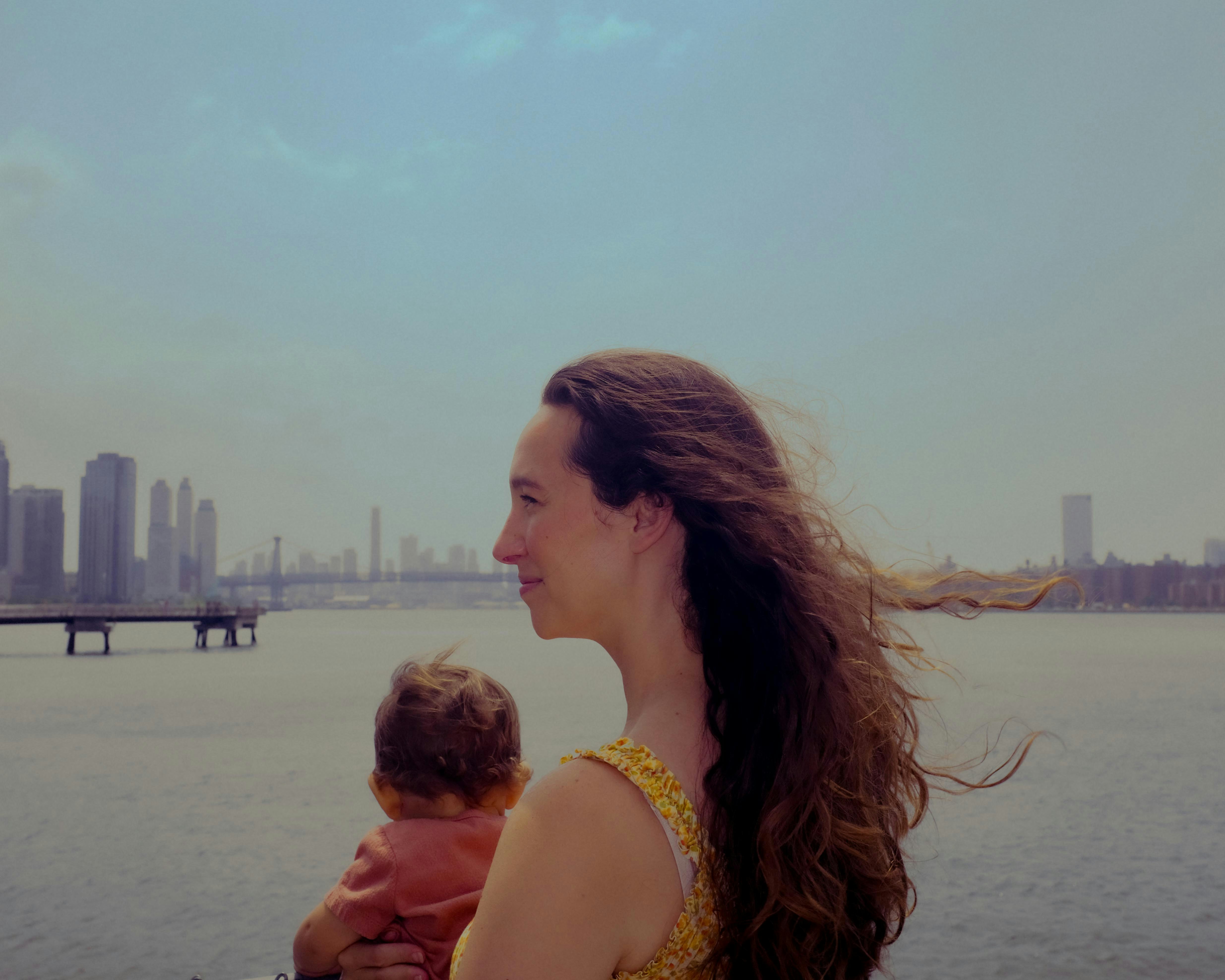
“Little by little”
I was about to turn 38 when I gave birth. John and I had met at 35 and 36, and we froze embryos early on just in case. We set a date to do an embryo transfer after six months of trying without success. The doctor looked at me and said, You’re about to ovulate. Go have a bunch of sex this weekend. It was New Year’s Eve, my late father’s birthday, and that ended up being the day we conceived August.
Aside from four or five weeks of awful morning sickness, pregnancy was wonderful. I absolutely loved it. I wasn’t in any rush for him to get out of my body. Even when he was two weeks late, I still felt great. The birth was another story, though. We had planned a home birth in LA that went very badly. I was fully dilated but August's head was tilted back and he got stuck. Our midwife froze, and she wasn’t communicating. I ended up laboring for 25 hours and pushing for five. When another midwife arrived and realized how long I’d been pushing, she was horrified. We were rushed to the hospital and the doctors there were furious. Two hours of pushing is supposed to be the maximum. All of that pressure on my uterus caused me to lose a tremendous amount of blood after the emergency C-section.
I was in survival mode afterward. I wasn't producing milk yet because of the blood loss, and I was working on my supply by placing August on my breast and syringing donor milk into his mouth. A doula came to visit me, and she kept repeating this phrase: little by little. Little by little, he’ll be on your milk. Little by little, sleep will improve. Little by little, your body will feel better. I still think of her voice saying that.
After the C-section, with a scar across my body and barely able to walk, I had to focus only on the next tiny step. Thinking too far ahead made me spiral. But “little by little kept” kept me grounded. It was such a simple phrase that centered me through recovery and into early motherhood.
My recovery was difficult but fast. Within three weeks I was breastfeeding and felt like I’d regained my health. Then, three weeks later, my publisher sent me edits on my book and asked for them to be returned in three weeks. I had handed the manuscript in before giving birth, but after everything that had happened, I rewrote a huge portion of it, probably around 25,000 words.
That perspective made the book stronger. In memoir, there are always two narrators: the me who’s in the mess of the moment and the me with distance who can contextualize it. Postpartum gave me wisdom and perspective I hadn’t had before. I was able to weave that voice through the book in a way that made it richer, more grounded, and, I think, stickier.

"I was in survival mode afterward. I wasn't producing milk yet because of the blood loss, and I was working on my supply by placing August on my breast and syringing donor milk into his mouth. A doula came to visit me, and she kept repeating this phrase: little by little. Little by little, he’ll be on your milk. Little by little, sleep will improve. Little by little, your body will feel better. I still think of her voice saying that."
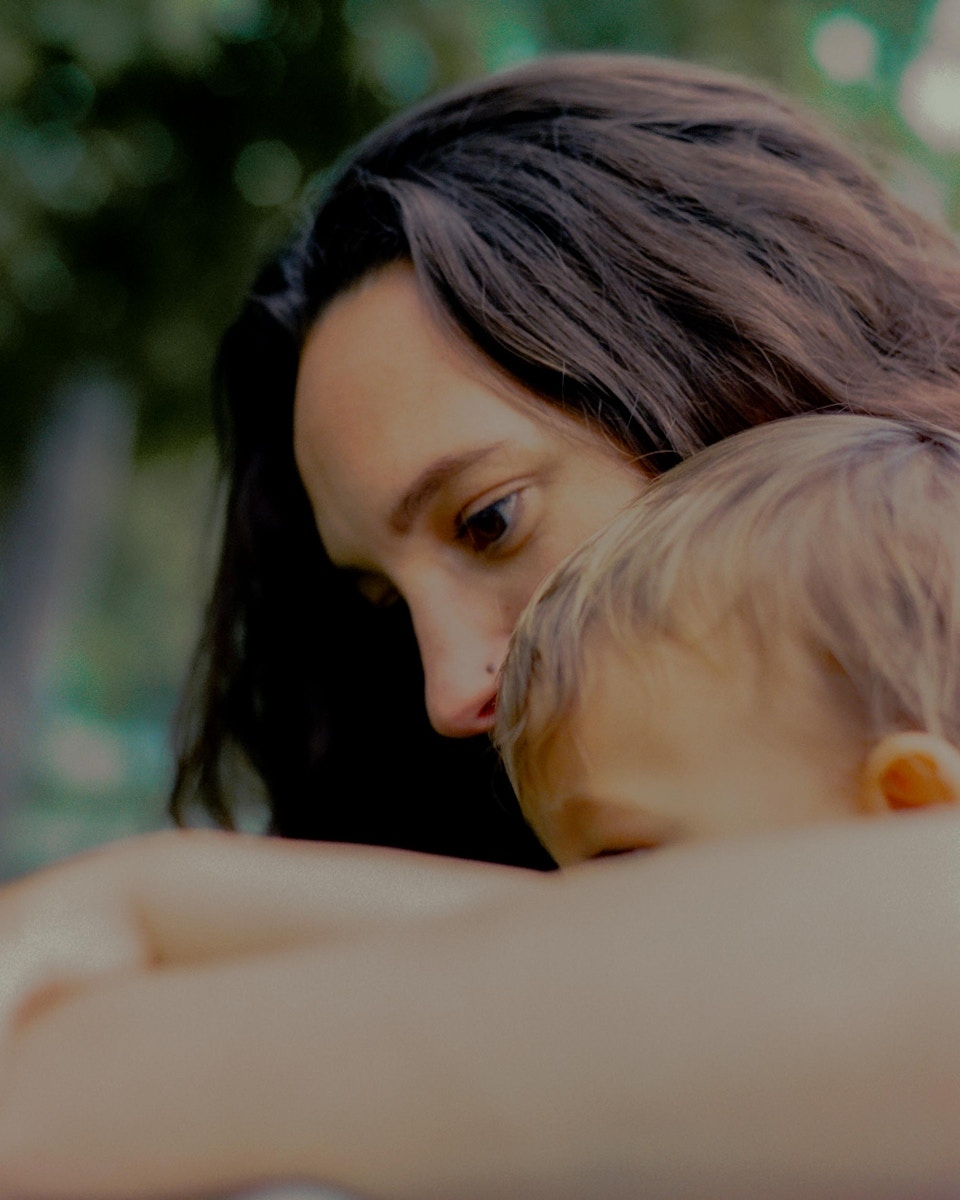
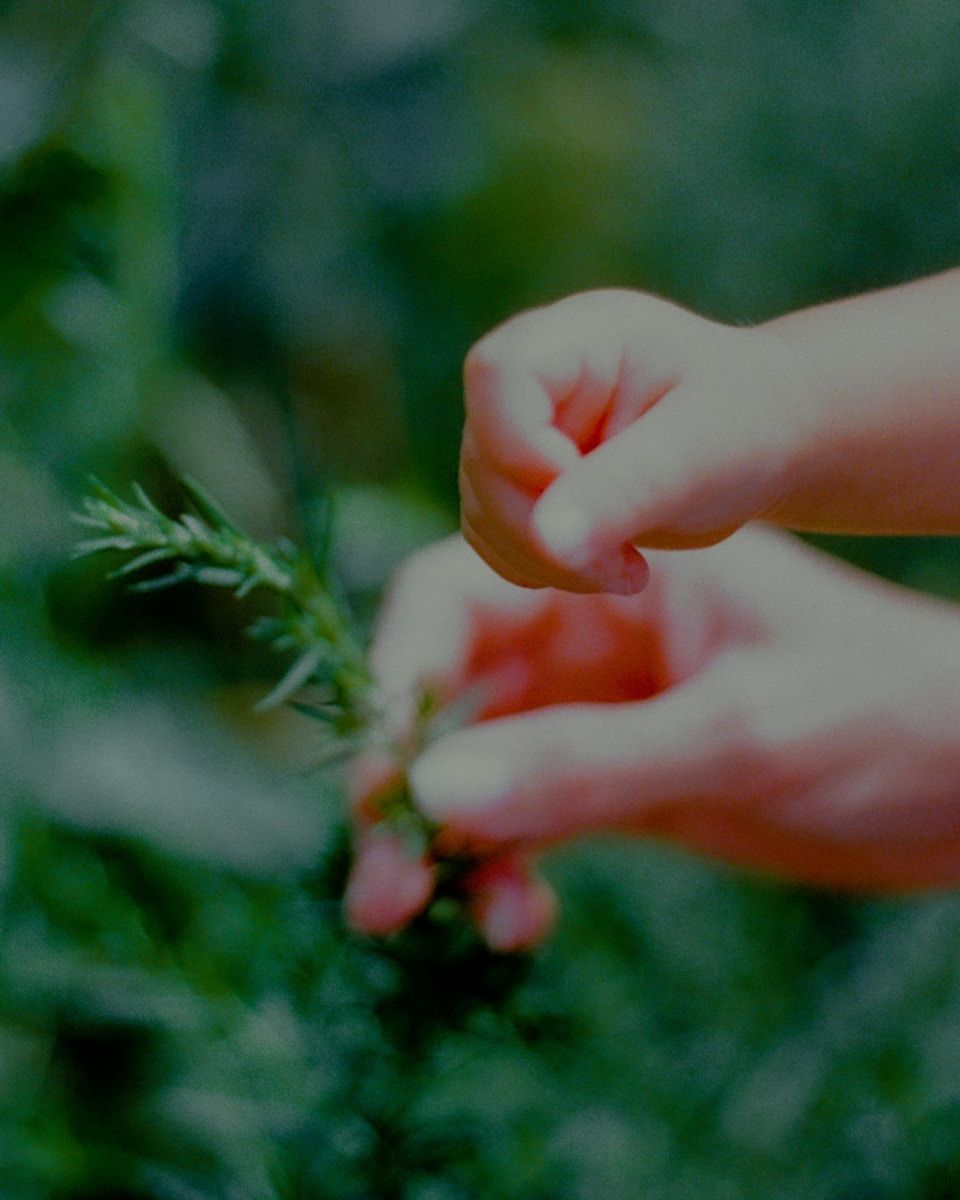
"That perspective made the book stronger. In memoir, there are always two narrators: the me who’s in the mess of the moment and the me with distance who can contextualize it. Postpartum gave me wisdom and perspective I hadn’t had before. I was able to weave that voice through the book in a way that made it richer, more grounded, and, I think, stickier."

The risk and reward of honest storytelling
The last sections of my book were about my childhood trauma and breaking generational chains. Being pregnant brought the “mother wound” into sharp focus. I was looking at my relationship with my mom, and at mothering in general. I had a few repair conversations with her before the book came out and that gave me a sense of closure. Part of the process has been accepting my mom as she is, seeing the good in her, and letting that be enough rather than trying to fix or change her.
Parts of the book were difficult for her to read. She got it about two weeks before it came out and had a lot of feelings. I made the choice not to let her read it beforehand because I knew she’d want to change things and I had to really trust in myself, and in my story. For me, part of the lesson was tolerating the discomfort of someone’s disapproval. Nothing in the book was written to harm her—healing was my intent.
I’ve had so many people tell me they see my mom as a strong character, a badass even. Mothers have reached out saying they could relate to her, and that the book helped them understand their own daughters better. That feels like the intention of the book working—healing in all directions. My therapist asked me outright, Did you write these things to hurt her? and my answer was no, of course not. The intention was always healing.
She’s now on her third read. On tour, she gave me space and didn’t share her reactions, which I appreciated. I even asked her, if she did have strong feelings, to process them with someone other than me. That felt like the healthiest boundary. So far, that’s what she’s done.
The best gift to give a child: permission to not worry about you
I want my son to feel free to be exactly who he is without over-focusing on who he thinks the world needs him to be. So much conditioning happens as we grow—we adjust or adapt ourselves for other people’s satisfaction, happiness, or approval. I want him to know that he doesn’t have to take care of my feelings, and he doesn’t have to worry about keeping me okay. My role is to hold space for his becoming, for him to step fully into himself. That kind of free self-expression is deeply important to me.
The other piece is modeling healthy love. Healthy love was never modeled in my family line. It’s something that has been missing for generations. That’s what I want to break for him and for the next generation: to create a new story moving forward. Him having a secure attachment is just as essential. That feels like the foundation for everything.
